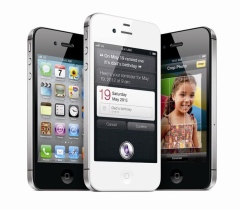Ban on overseas lithium battery shipping likely to end soon
The ban on shipping electronics with rechargeable lithium batteries overseas through the U.S. Postal Service will likely end soon, but not before the holiday season is over.
The International Civil Aviation Organization has approved a new set of 2013 requirements for transporting the batteries that power mobile phones, computers and other popular electronics, according to ICAO and International Air Transport Association documentation.
Many of ICAO’s member nations, including the United States, imposed a ban on flying the batteries overseas through their postal services because of fire safety concerns.
The new requirements set varying limits on battery weights and quantities, most of which will not hinder the average consumer at overseas U.S. military bases and embassies.
The U.S. postal service hasn’t yet received the authority to begin shipping the devices overseas but expects that to happen shortly.
“The Postal Service anticipates that on January 1, 2013, customers will be able to mail specific quantities of lithium batteries internationally (including to and from an APO, FPO or DPO location) when the batteries are properly installed in the personal electronic devices they are intended to operate,” according to the USPS website.
The new regulations limit the number of lithium batteries in a single package based on their watt-hour ratings and total weight of the batteries, which cannot exceed slightly more than 11 pounds (five kilograms). The regulations do not restrict the weight of the package’s total contents beyond those already set by the Military Postal Service.
The watt-hour restrictions allow for shipment of most laptop computers, along with a spare battery, as well as phones and other devices.
If the postal service adopts the changes as expected, some buyers of specialized electronics or those buying in bulk may need to separate their shipment into separate packages or consult the seller for special arrangements.
The postal service prohibited shipments of the devices overseas beginning May 16. The move left hundreds of thousands of servicemembers, diplomats and their families with limited — and usually, more expensive — options to buy electronics with U.S. specifications.
Private companies like FedEx and DHL have continued shipping electronics containing rechargeable batteries. That isn’t an option for servicemembers in combat zones and remote locations. Private shippers charge at international rates higher than USPS, which sends packages through the Military Postal Service at domestic rates.
Holiday shoppers did gain one more limited option Wednesday from the Army and Air Force Exchange Service.
AAFES has made 80 products labeled with a “lithium ship-to-store” logo available to servicemembers overseas through its website, www.shopmyexchange.com. AAFES is shipping the products, which include certain models of cameras and tablet computers, to its stores via FedEx.
The products will be available for pickup at AAFES stores in Afghanistan, Belgium, Germany, Guam, Italy, Japan, South Korea, Kuwait, the Netherlands, Portugal, Turkey and the United Kingdom.












